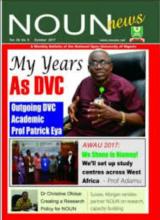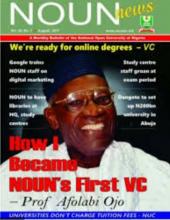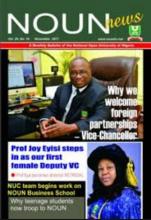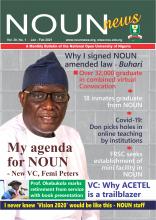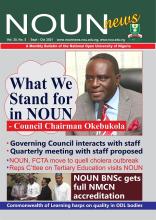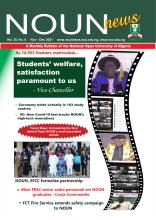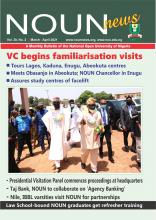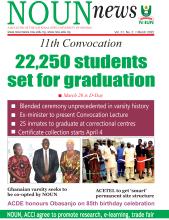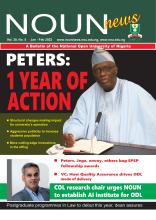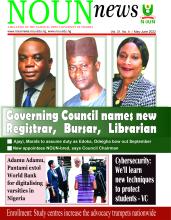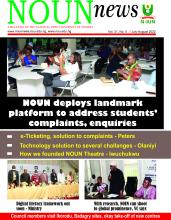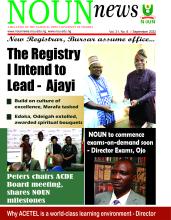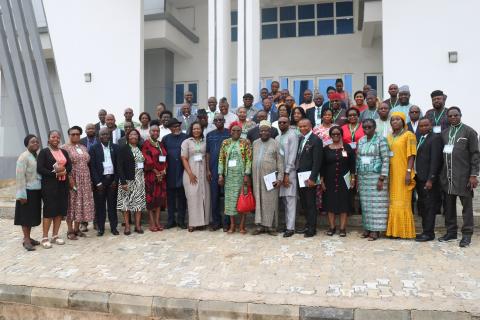
Sequel to the ongoing global concern of graduate employability in Higher Education Institutions (HIEs), stakeholders in education sector have recognised the need for graduates to be equipped with relevant skills and competencies to meet market demands.
This, they said, has become imperative in ensuring that graduates are not only academically proficient but also equipped with practical skills and industry-relevant knowledge to thrive in the competitive job market and contribute to regional socio-economic development.
This formed the thrust of discussion at a 2-day training workshop with theme: “Development of Graduate Employability Framework for Directors of Academic Planning of Dual-Mode HEIs in West Africa,”organised by the Regional Training and Research Institute for Distance and Open Learning (RETRIDOL-NOUN) in collaboration with The Commonwealth of Learning (COL).
The workshop was held between May 16 -17, 2024, at the National Open University of Nigeria (NOUN) headquarters in Abuja, Nigeria.
Prof. Godwin Akper (DVC TIR) representing Prof.Olufemi Peters (VC-NOUN)
The event aimed at equipping participants with the knowledge and skills to develop and implement effective employability frameworks tailored to the unique context of their institutions.
It brought together stakeholders, academicians, and directors of Academic Planning of Dual-Mode HEIs in West Africa.
In his welcome address, NOUN Vice-Chancellor, Prof. Olufemi Peters encouraged participants to make use of the opportunity provided by RETRIDOL in collaboration with COL to add knowledge.
Peters said RETRIDOL-NOUN continues to play a pivotal role in capacity building and enhancing graduate employability in the sub-region.
“To all the Directors of Academic Planning who are participants at this workshop, you have been entrusted with the critical task of shaping institutional frameworks. It is my hope that this workshop will both benefit from as well as enrich your expertise, paving the way for the development of robust employability frameworks that will produce well-rounded graduates, essential for sustainable development of our nations,”he said.
The Vice-Chancellor, represented by the Deputy Vice-Chancellor, TIR, Prof. Godwin Akper, said employability has become an increasingly important consideration for HEIs especially in this age of rapid change and innovation.
“As we engage in deliberations on developing a framework tailored to HEIs utilising Open and Distance Learning, it’s crucial to acknowledge the unique characteristics of our student population. Many of our students are actively involved in various vocations, leveraging the flexibility offered by this mode of learning.
“It is imperative, therefore, to consider the diverse opportunities available to them within this educational landscape as we shape our framework.
“NOUN has embraced the challenge. Our proactive approach includes the development of an employability strategy in 2021, aimed at integrating employability skills across all our programmes.
“This move is in addition to initiatives like students Industrial Work Experience Scheme (SIWES) for which NOUN established a directorate in 2012 and the Directorate for Entrepreneurship and General Studies (DE&GS) underscoring our commitment to preparing students for the future of work,”he added.
Earlier in her opening remarks, the Director, RETRIDOL, Prof. Christine Ofulue, said the workshop was particularly timely as it tried to address the pressing issue of graduate employability.
According to her, it is a challenge faced by HEIs amidst the rapidly evolving landscapes of higher education and the workplace, influenced by technological advancements.
Ofulue, represented by Director, Quality Assurance, Prof. Juliet Inegbedion, said the objectives of the workshop were: Exploring the best practices to integrate industry-relevant skills, design impactful programmes and leverage data for continuous improvement, facilitate knowledge sharing and create a support network among participating institutions to advance graduate employability, among others.
Speaking on the expected outcome, Ofulue said at the end of the workshop, participants would have identified employability skills that would enhance university graduate performance across all programmes of study; developed graduate employability strategies that meet the needs of the learners, labour market and society.
the director appreciated the two distinguished resource persons, who would take the participants through the route of the workshop: Prof Juliet Inegbedion from NOUN, whose involvement in developing and implementing NOUN’s employability strategy brought an invaluable expertise and Barrister Christian Ugwuala form Abuja Chamber of Commerce and Industry, whose extensive experience in the industrial sector would undoubtedly enrich the discussion.
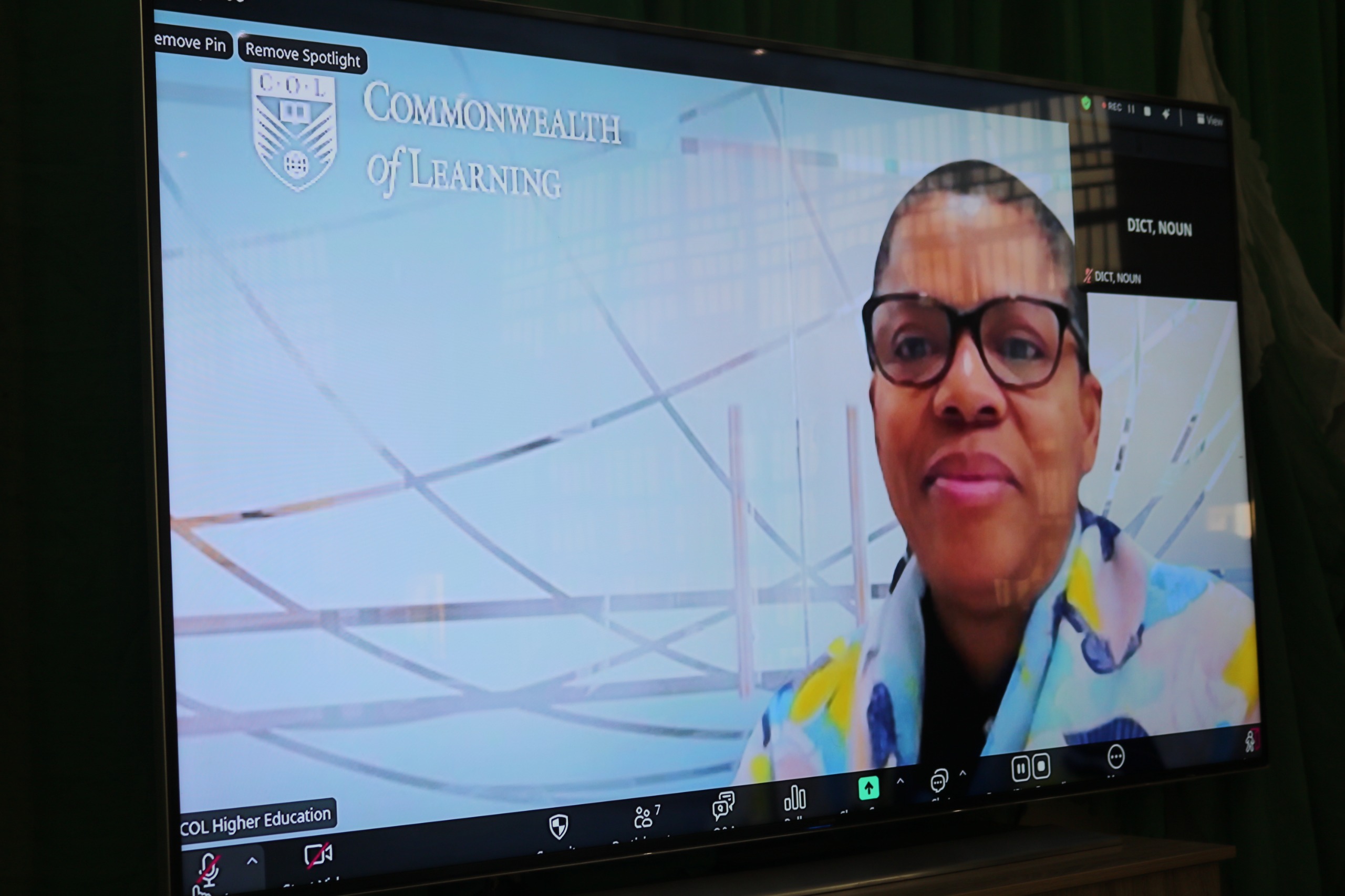
On her part, COL adviser to education, Prof. Jane-Frances Agbu, said the COL recognises the imperative to enhance graduate employability in West Africa, particularly within the context of dual-mode HEIs.
Giving a brief insight on COL, Agbu said COL was created by Commonwealth Heads of Government in 1987 with the aim of promoting the development and sharing of open learning and distance education knowledge, resources and technologies.
According to her, COL provides greater access to quality education and training through open, distance, and technology-enabled learning, thereby allowing improved livelihoods, greater gender equity, and overall economic, social, and cultural development leading to sustainable development.
“COL is committed to promoting equitable access to quality lifelong learning for all - believing, in effect, that access to learning opportunities will lead to progress in achieving sustainable development,”she said.
Participants were also taken through a hands-on session to develop a preliminary framework, peer review and feed back session on the draft frame work, sharing and discussion of the refined graduate employability framework as well as break out sessions and group presentations to ascertain their level of assimilation.
Certificates were presented to all the participants at the end of the 2-day workshop.
- Log in to post comments
- 127 views

